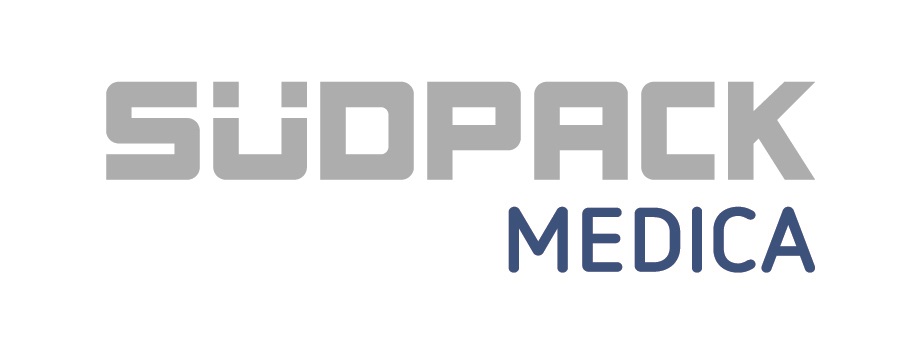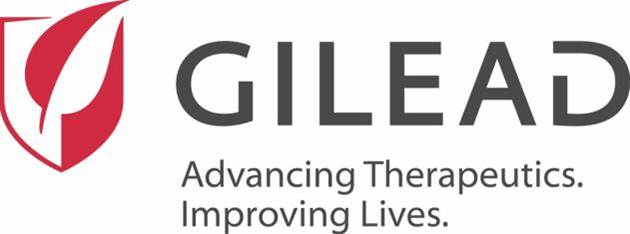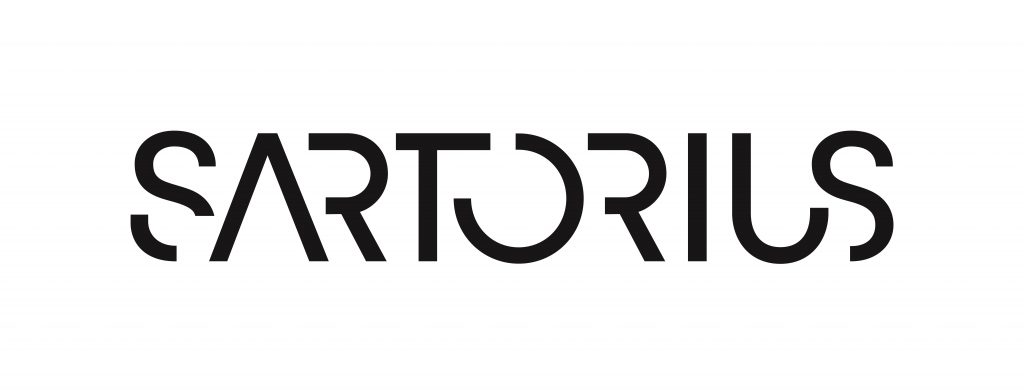An ECI Conference Series

March 17 – 20, 2025
Malta
Single-Use Technologies VII Final Program
About This Conference
Single-Use Technologies VII: Revolutionizing Manufacturing for Tomorrow’s Medicines is the seventh event of an ECI conference series started in 2015 and unique in its aim – to advance knowledge in the fundamental science and engineering underpinning Single-Use Technology (SUT).
The conference will be a 4-day event and will target 100-120 attendees. The speakers and attendees are from industry and academia, single-use final product (e.g., bags, assemblies) manufacturers, film/resin manufacturers, the biopharmaceutical industry, experts in polymers/materials science, manufacturers of novel biomedical devices and organizations that support and facilitate single-use technology design and applications. Regulators are also invited to speak and attend.
This conference builds on the success of the previous editions, targeting highly relevant talks and poster presentations, and networking, with a focus on four key themes:
- Quality Foundations – demonstrates the continued efforts to meet fundamental requirements for single-use technologies and their applications: quality standards and regulatory compliance. Addresses risk-based management approach to validate new product introductions.
- Single-Use Technology Advancements and Enablers – refer to innovations that enhance single-use applications (e.g. new materials, films, sensors, and analytical tools), to the use of single use solutions in the R&D landscape and demonstrate how they improve manufacturing operations (e.g. process intensification, continuous processing)
- Sustainable Solutions in Single-Use Design and Manufacturing – signifies and acknowledges the collective efforts for an industry-wide approach to design and use single-use technology in a sustainable manner.
- Future Perspectives and Emerging Trends – examines the applications to new medicines of single-use technologies, broader developments in single-use design and application, including wider use in R&D, and adjacent technologies that enhance single-use applications in the manufacture of tomorrow’s medicines.
This conference brings together a multidisciplinary community interested in collaborating openly towards the advancement, expansion, and environmentally responsible use of single-use technology in the bioprocessing industry. The organizing committee welcomes the submission of high-quality scientific work, supported by data.
This is the seventh event of the ECI Single Use Technology conference series started in 2015 and unique in its aim – to advance knowledge in the fundamental science and engineering underpinning Single-Use Technology (SUT).
Conference Chairs
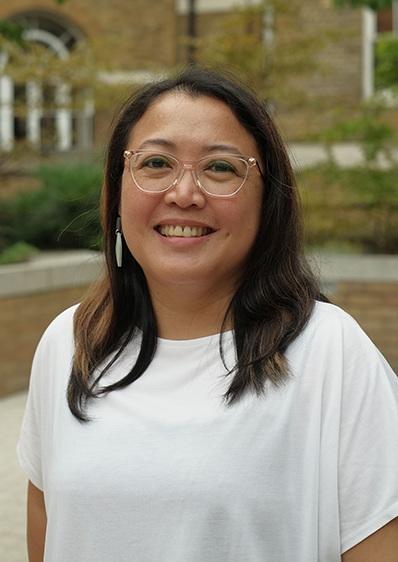
Andrea Rayat
University College London
Andrea Rayat is Associate Professor in Bioseparations and DSP at University College London (UCL). Her research group studies and develops scale-down methods to investigate primary recovery and membrane processes in biotech product manufacture. This is at the interface of technology translation and knowledge exchange having previously secured UKRI BBSRC, EPSRC Impact Acceleration, and Knowledge Transfer awards. The latter won for their team an IChemE global award. Her work on SUT covers downstream applications, particularly on the optimal operation and characterisation of membrane filters. A current focus is on new modalities (e.g., viral vectors, nucleotide-based therapies) and technology (e.g., SPTFF).
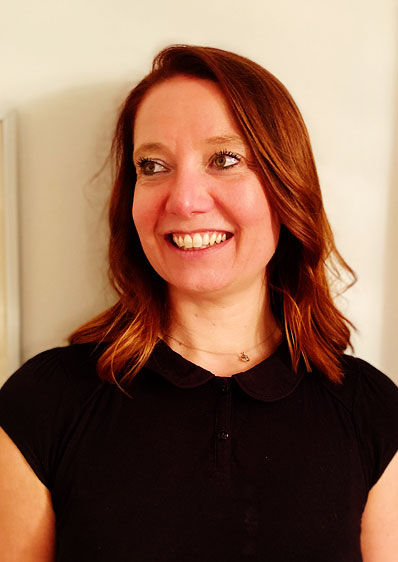
Nelly Montenay
Sartorius
Nelly Montenay is Head of Science & Testing for a Product development group in BPS Sartorius. Nelly is a specialist in polymer sciences and polymer transformation with a strong background in film & tube extrusion. She received an Engineering degree in Polymer Sciences from the French ITECH Lyon Engineering School in 2003. With 20 years of experience in Polymer science, film development and product qualification testing, Nelly and her group are advocating Material sciences within Sartorius. With a strong interest in communication skills and people, Nelly plays also a key role in supporting projects & exchange within international groups.
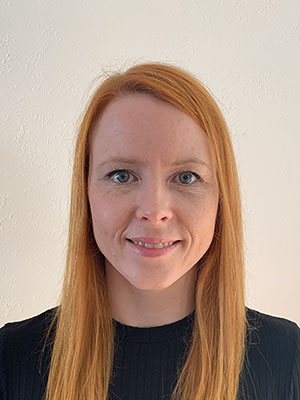
Katharina Neutsch
Roche Genentech
Katharina is the Asset Care Lead for single-use equipment in the single-use facility at the Roche headquarter in Basel, Switzerland. When she joined Roche in 2018, she was part of the production engineering team, working on technology transfers of biologic drug substance manufacturing processes to the SUT facility. In her current role she is responsible for establishing a single-use technology landscape that enables efficient and reliable
manufacturing and is harmonized across the Roche/Genentech network.
She holds a Master’s degree in Biotechnology from the Anhalt University of Applied Sciences in Köthen, Germany, and has more than 12 years of experience with single-use material.
2025 Poster Awards
Best Technical Poster
Marie Dorn
University College London, UK
“Transforming Bioprocess development: Sustainable, resource-efficient perfusion screening with single-use microwell plates”
Most Novel Technical Innovation
Stuart Tindal
Sartorius Stedim Biotech GmbH, Germany
“Flow through ready for use technologies for a continuous downstream process”
Most Attractive Poster
Katharina Dahlmann
Hamilton Bonaduz AG, Switzerland
“Innovating medicine manufacturing: The future of profess analytical technology (PAT) in single-use technologies and their expanding role in bioprocess development”
Session Descriptions
Quality Foundations
This session focuses on improvements in the quality foundations of SUT in biopharmaceutical manufacturing.
The Quality domain rests on several key pillars:
- Rigorous material selection and validation processes ensure the integrity and compatibility of single-use components with biopharmaceutical processes, mitigating safety and performance risks including those from leachables and extractables.
- Robust manufacturing and assembly standards guarantee the reliability and consistency of SUT throughout its lifecycle, from procurement to disposal.
- Comprehensive quality assurance and control measures, including in-process monitoring and testing, uphold product quality and ensure regulatory compliance.
- Constantly evolving the quality requirements for SUT to learn from industry experience.
Ultimately, the adoption of SUT quality foundations not only optimizes manufacturing operations but also enhances product safety and accelerates time-to-market for life-saving biopharmaceuticals.
Session Chairs:
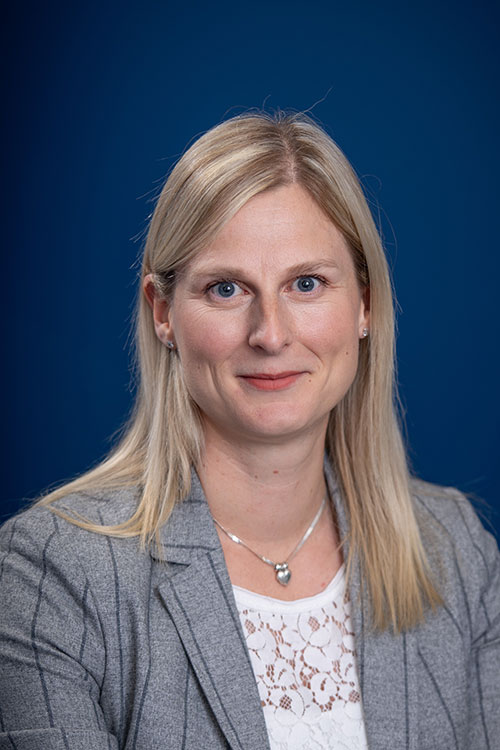
Dr. Nicole Hunter
Watson-Marlow (UK)
Dr. Nicole Hunter is the Head of Global WMArchitect Single-Use Solutions at Watson-Marlow Fluid Technology Solutions (WMFTS) having previously held the position of Head of Global Regulatory & Validation Services. Prior to joining Watson-Marlow, she led a Research & Development team at Thermofisher Scientific focussed on developing in vitro diagnostic devices. Her PhD in the area of pharmaceutical materials science was undertaken at the University of East Anglia, UK. She is an active member of several industry working groups and committees including BioPhorum and BPSA.
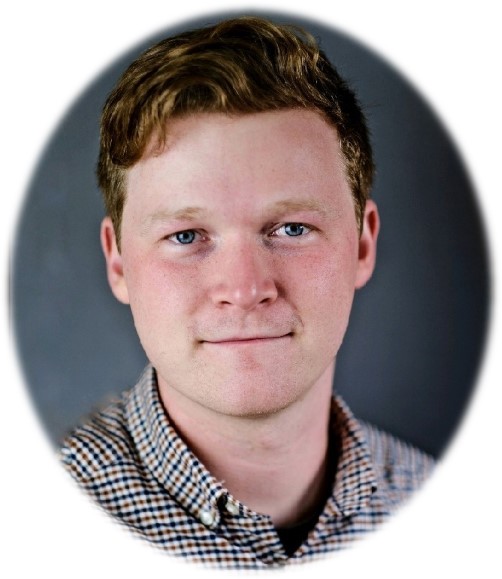
Shane Kelly
Fastnet Biopharma
Shane has been working with single use materials since he completed his thesis on extractables and leachables in 2015. He has worked in single use for the last 10 years for a number of biopharma end-users, both large and small.
Shane is currently a co-founder and Technical Director of Fastnet Biopharma, a Single Use consultancy. This experience uniquely positions him to represent end-users, as he has seen a broad range of approaches to all aspects of SU from design, qualification and supply chain. He likes to say he has ‘seen the Good, the Bad and the Ugly’ when it comes to Single Use, and is more than happy to share his experience and knowledge so we may further our industry together.

Noemí Dorival García
NIBRT (Ireland)
Noemí holds a PhD in Analytical Chemistry from the University of Granada (Spain) and has an extensive background in the investigation of ‘small molecules’ in environmental and biological matrices. She
joined NIBRT in 2015 on a project focused on the characterisation of E&L compounds from single-use technology solutions, using different mass spectrometry-based techniques. Currently, she leads E&L
projects at different levels of biomanufacturing processes. Noemí is also involved in the investigation of Process Analytical Technologies, specifically focused on on-line automated systems for continuous
product characterisation, using high resolution LC-MS techniques, metabolomics and Raman spectroscopy for increased process understanding, and control.
Single-Use Technology Advancements and Enablers
This session aims to highlight recent innovations in single-use technologies for biopharmaceutical manufacturing and provide insights needed to drive future innovations in the field. Examples of topics of interest include:
- Breakthroughs in material science and sensor technology to build the next generation of single-use products.
- Recent advances in single-use bioreactors, filtration systems, chromatography systems, and other process operations leading to enhanced process performance.
- Examples of how single-use technology is enabling intensification and more flexible processes.
- How are single-use technologies being applied in R&D settings? What advantage do they offer and what potential do they hold for reducing time to market for new products?
Join us to present how recent advances in single-use products are enabling a paradigm shift in biopharmaceutical manufacturing. Case studies highlighting the impact of these advances on processes are encouraged.
Session Chairs:
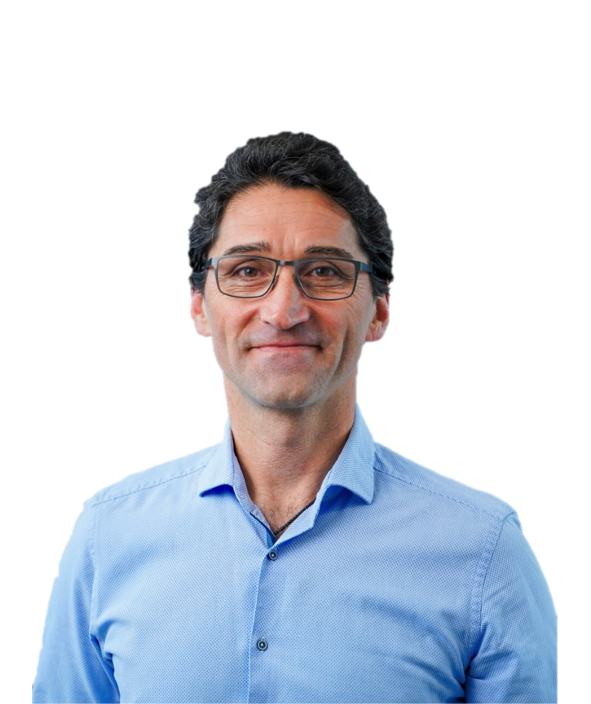
Marcus Bayer
Hamilton (Switzerland)
Marcus Bayer is market segment manager for single use solutions at Hamilton Bonaduz AG, Switzerland since 2016. In this position he is responsible for the expansion of the process analytic sensor portfolio to the needs for the single-use sensor market.
With over 25 years of experience in the biopharma, plastics as well as process engineering industries, Marcus is an expert on leveraging technologies for single use applications.
He holds a degree in both plastic engineering and business and administration.

Gary Gilleskie
NCSU (USA)
Gary Gilleskie is the Executive Director of North Carolina State University’s Golden LEAF Biomanufacturing Training and Education Center (BTEC) – a unique center whose mission is to develop skilled professionals for the biomanufacturing industry. Since joining BTEC in 2007, Gary has developed and taught numerous courses in the area of downstream biopharmaceutical process development and manufacturing for university students, industry professionals, and various regulatory agencies throughout the world. Among those courses is Hands-on Single-use Processing for Biopharmaceuticals, a short course taught annually for industry professionals. In addition, he leads BTEC’s efforts in the area of viral-vector based gene therapy manufacturing. Prior to joining BTEC, Gary spent 15 years in both the chemical and biopharmaceutical industries, most recently at Diosynth Biotechnology (now Fujifilm Diosynth Biotechnologies). Gary received his B.S. in chemical engineering from NC State University in 1986 and his Ph.D. in chemical engineering from the University of Minnesota in 1993
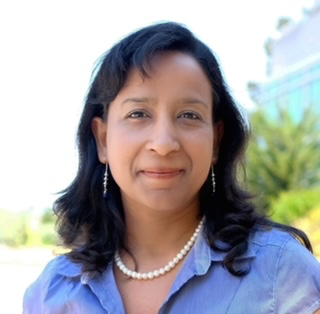
Ekta Mahajan
Gilead (USA)
Ekta has over 20 years of industry experience, along with 4 patents and 14 publications and is recognized for being visionary thought leader and driving new technologies and innovation. In her current role as Head of Material Science, she is leading the technical support for selection, characterization, and performance of raw materials used in manufacturing and analytical testing for all biologics programs at Gilead. Before joining Gilead, she was at Genentech and lead the material science program for cell therapy with a focus on understanding, controlling and qualifying materials for cell therapy using science and risk-based approach. In her previous roles, she led the technical regulatory team for global filing of initial market application for Phesgo, the first Genentech fixed dose combination monoclonal antibody, lead projects in a wide range of areas, both upstream and downstream, including commercial manufacturing support, process development, and new technology evaluations. Before joining Genentech, Ekta was a process engineer at Merck, working on vaccines and process operations. She holds Chemical Engineering degrees from the Thapar Institute of Engineering and Technology, Punjab, India and Bucknell University, Pennsylvania.
Sustainable Solutions in Single-Use Design and Manufacturing
This session signifies and acknowledges the collective efforts for an industry-wide approach to design and use single-use technology (SUT) in a sustainable manner.
The operational and economic benefits of SUT in the manufacture of biopharmaceuticals and advanced therapies are known. However, these need to be balanced with the environmental impact of applying SUT. This session aims to highlight the wider industry efforts on the integration of environmental sustainability and the collective efforts in advancing opportunities for a circular bioeconomy.
The focus is on covering the product life cycle involving raw materials and product outlook from design, manufacture, use, and end-of-life. Material topics included are sustainable materials, recycling, post-use/end of life, bio-based materials, substances of concern for recycling, PFAS restrictions, and packaging optimization. Process topics included in this session are PMI reduction, water, energy, emissions reduction, and SUT reuse.
Some of the questions we aim to tackle include:
- Which products and operations have high environmental impact?
- What does life-cycle-analysis and other tools say about potential areas for improvement to reduce the environmental impact of SUT?
- What tools, metrics and practices can we use to design and manufacture sustainable SUT?
Session Chairs:
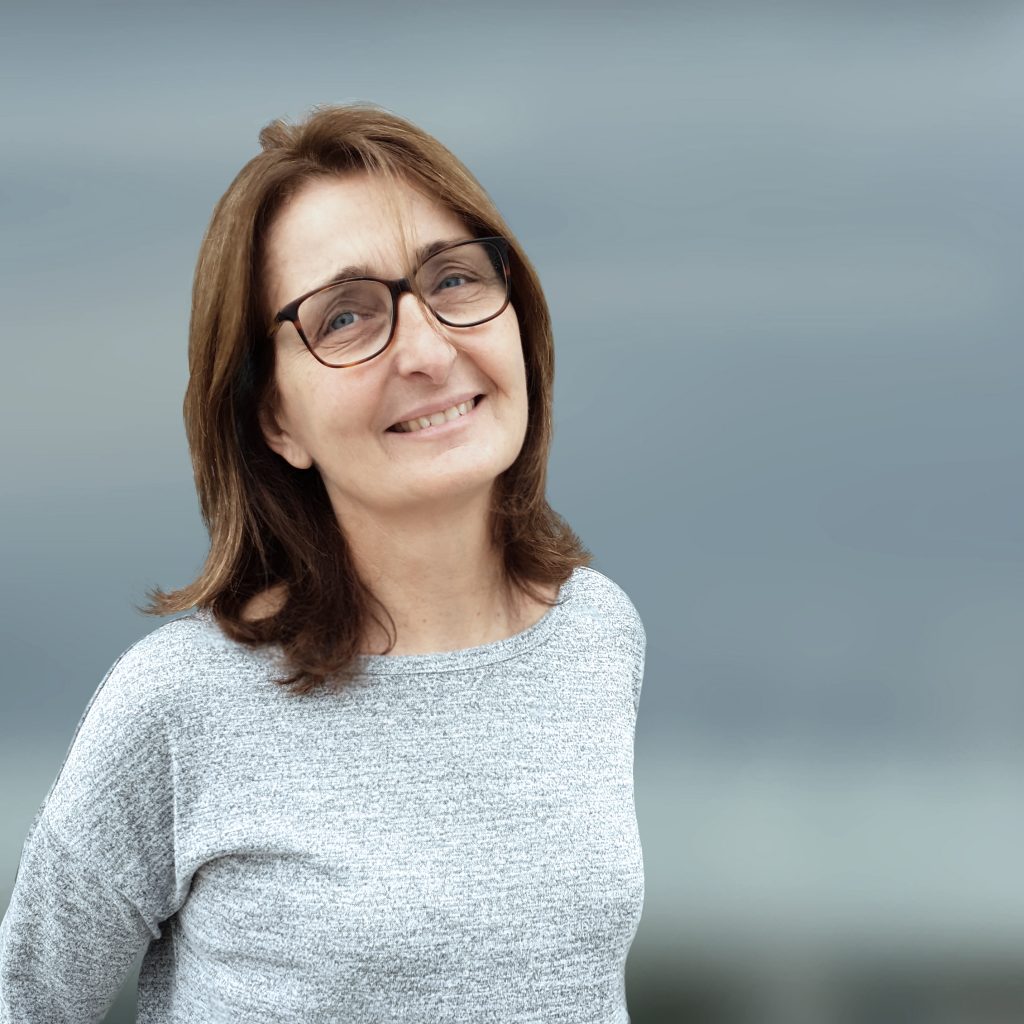
Magali Barbaroux
Sartorius (France)
Magali Barbaroux has over 30 years of experience in polymer science for healthcare applications. She started her career with research into silicone for drug delivery and migration of active substance through polymeric membrane. She joined Sartorius in 2000 and contributed to the development of low extractables products, optimized for bioprocessing applications. She now belongs to the Sartorius Corporate Research and manages the Advanced Polymers related research programs, with a strong focus on environmental sustainability and circularity of polymers.
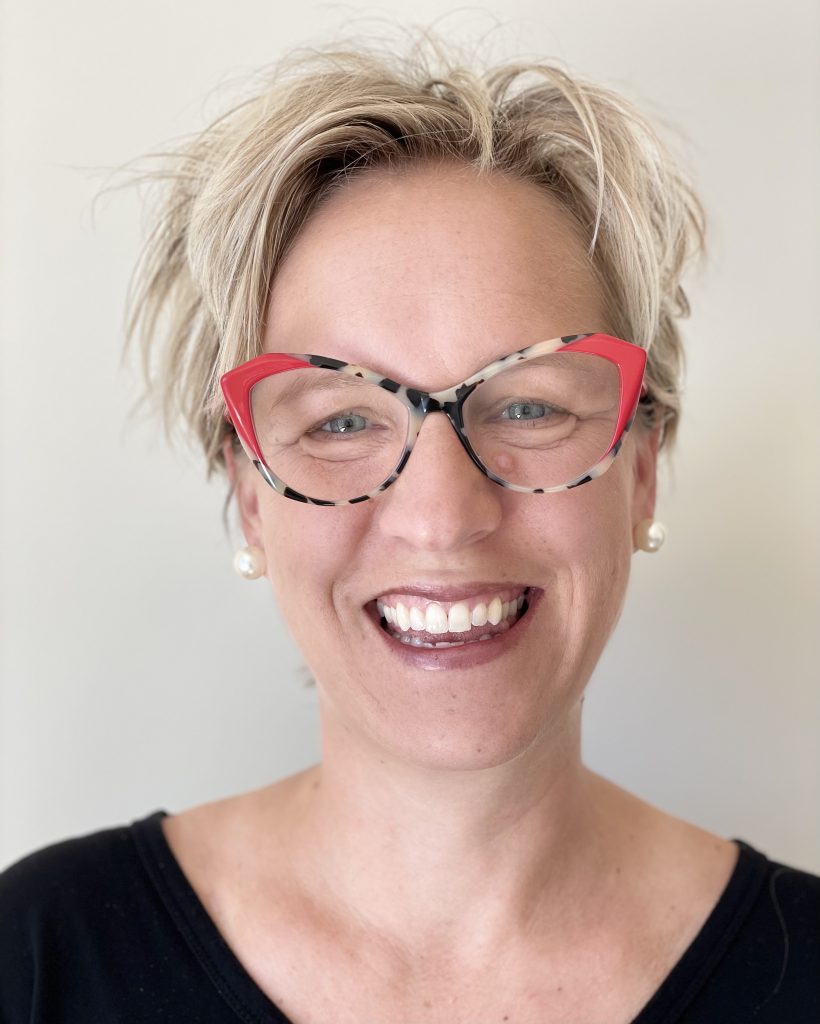
Emelia DeForce
Roche Genentech (USA)
Emelia DeForce is the Senior Program Manager for Sustainable Science and Product Stewardship at Genentech. In her role, she is bringing sustainable practices into the lab space and into the manufacturing facilities. More specifically, she works together with sites that have implemented SUT manufacturing to standardize sustainability practices across the network. She has a Ph.D. in Microbiology from University of Massachusetts Boston and worked on sustainability for over 15 years in academia, biotech, and pharmaceutical industries.

Jack Jefferies
UCL (UK)
Jack is a lecturer at UCL in Biocatalysis and biocatalyst engineering, his main research focus is on the discovery and assay of enzymes from metagenomic sources for industrial biocatalysis. He is developing high throughput methodologies for their retrieval and characterisation for their application in the production of high value chemicals or waste stream valorisations e.g. waste biomass or plastic waste. Jack is currently Co-I on a number of grants focused on plastic waste degradation including Bug-Busting Spandex: Biodegrading Textile Blends for Molecular Recycling, The Comfort Loop: A systems approach for sustainable absorbent hygiene products and the Engineering Biology Mission Hub: Preventing Plastic waste with Engineering Biology.
Future Perspectives and Emerging Trends
The future perspectives and emerging trends of SUT in biologics manufacturing are poised to redefine efficiency, flexibility, and innovation in the industry. Looking ahead, advancements in materials will drive the development of novel SUT with enhanced performance, durability and biocompatibility including reduced leachable, as well as broader chemical resistance and better sustainability.
Advancements in SUT will support key challenges in the manufacturing of new modalities such as cell and gene therapy. Novel concepts and designs as well as integration of monitoring, automation, robotics, data processing and digitalisation into SUT workflows will streamline manufacturing processes, optimize resources and enable process analytical technology (PAT) for greater process reliability and product quality. Integrated SUT platforms combining multiple operations will enhance productivity and reduce complexity. Modular, customizable and scalable SUT platforms will facilitate agile development and manufacturing strategies, support seamless transition from small-scale to proof-of-concept and then commercial scale as well as ensure cost-effectiveness across different process sizes.
The future of SUT in biologics manufacturing holds immense promise, driving industry-wide transformations towards more efficient, scalable, and adaptable manufacturing paradigms.
Session Chairs:
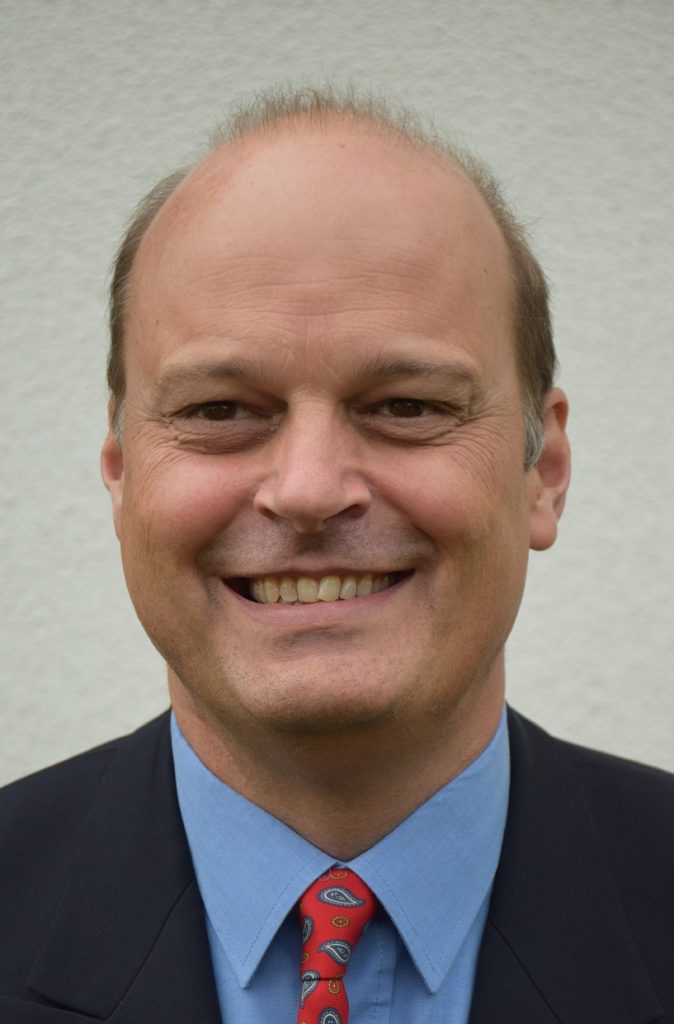
Patrick Evrard
Cytiva (USA)
Patrick Evrard has been active in the single-use arena for more than 25 years. After 15 years as GSK Vaccines’ global technical head for single-use systems (SUS), he joined Cytiva in 2017, providingexpert technical support to customers, as a Cytiva SME on particles, Allegro film, integrity and sterility assurance topics.
Patrick is participating to various industry working groups on SUS, including BPSA, BioPhorum, ASTM, ASME BPE and co-authored several guidance documents and standards, with a focus on particles and integrity for SUS.
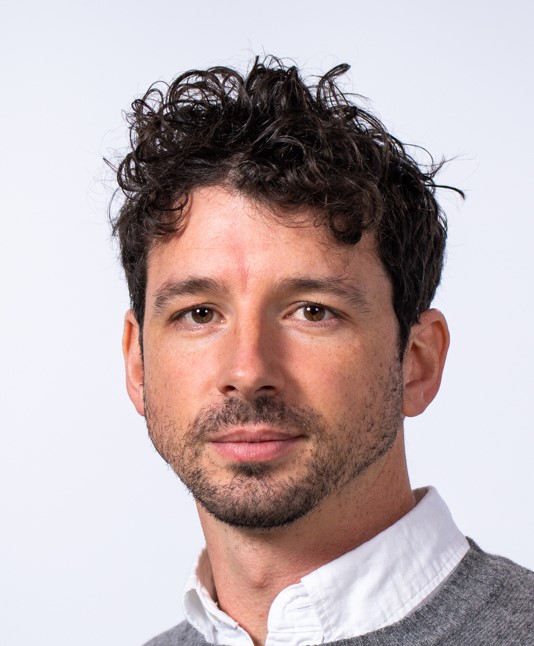
Michael Delahaye
AstraZeneca (Sweden)
Michael represents the BioPharmaceuticals R&D Cell Therapy Department at AstraZeneca, and brings with him over 15 years of industrial experience within the cell and gene therapy sector. His key focus is the development and delivery of robust manufacturing processes, supported by rapid, high resolution characterisation tools to facilitate the production of cell therapies.
Previously, Michael held the position of Head of the Viral Vector Industrialisation team at the Cell and Gene Therapy Catapult. He’s led teams of experienced scientists within the Viral Gene Delivery program, responsible for managing the developmental output of the group within collaborative, commercial and supporting R&D operations. Prior to that, he held roles at TAP Biosystems (now part of Sartorius Stedim) and completed his EngD in 2011 at UCL, which included multiple industrial collaborations.
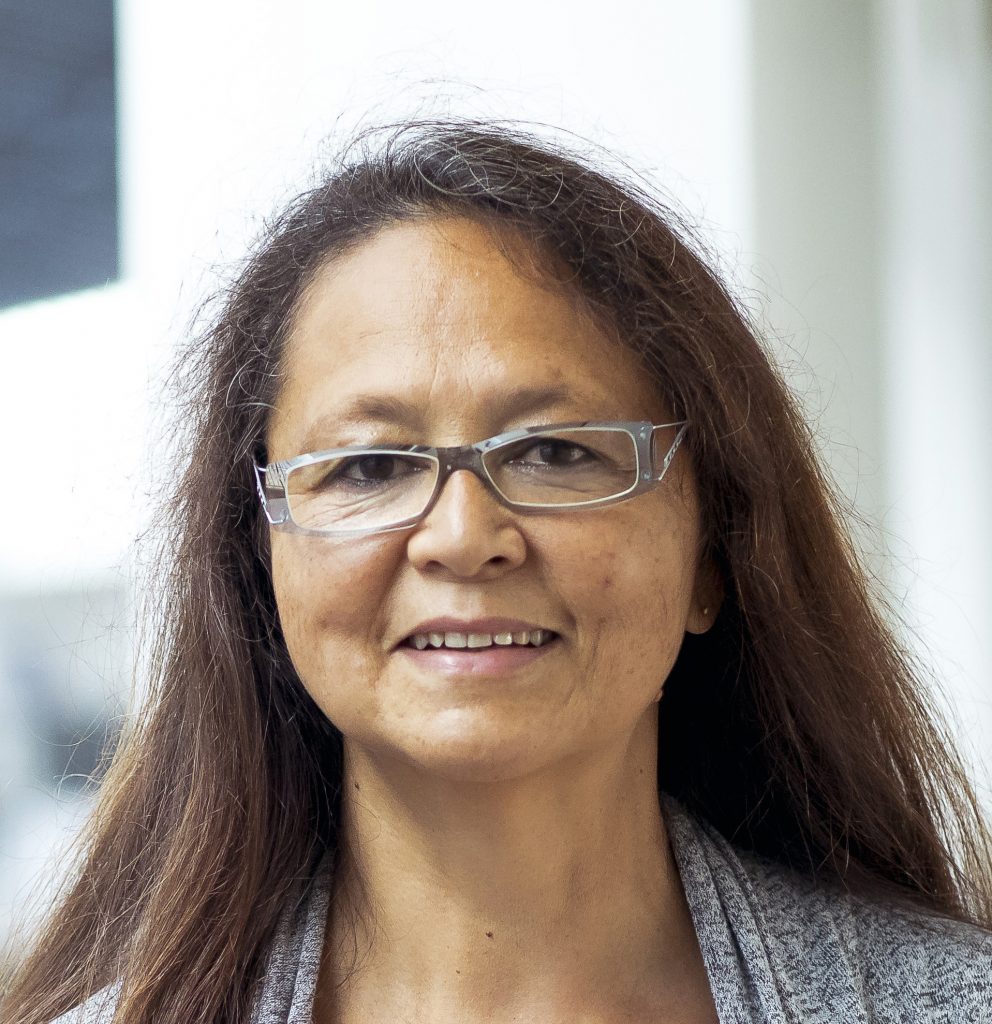
Professor Véronique Chotteau
KTH (Sweden)
Chotteau is Head of the Cell Technology group, at the Dept. Industrial Biotechnology, School of Engineering Sciences in Chemistry, Biotechnology, and Health, KTH – Royal Institute of Technology, Stockholm, Sweden.
Education: BSc Eng. Sciences, MSc Electrical Engineering, MSc Biotechnology, PhD Automatic Control/Biotechnology (Louvain University, Belgium)
Chotteau has ≥ 30 years of experience in mammalian cell culture including ≥ 10 years in industry(Pharmacia Upjohn/Biovitrum/Swedish Orphan Biovitrum). At KTH since 2008, she focusses on cell-based processes for biologics production (glycoproteins, viral vectors, cells), perfusion processing, modelling and PAT. She was the first to publish cell densities ≥ 200 millions CHO cells/mL in perfusion process.
Poster Session
The conference also welcomes high quality poster presentations related to the topics of the current conference. Please note that all submissions for oral sessions will be considered for both oral and poster presentation.
Poster Session Chairs:

Jeff Carter
Cytiva, USA
Jeff Carter has been a supplier to the bio/pharmaceutical manufacturing industry for over thirty years, and he has been with Cytiva since 2005, serving in R&D and Marketing capacities. His present role is Director of Upstream Applications. He is active in organizations such as ASTM E55 and BioPhorum. He is Chairman Emeritus of the Board of BPSA and a member of the BPSA Scientific Advisory Council. Dr. Carter holds a PhD degree from Penn State University in molecular microbiology.

Phillip Smith
GSK Biopharm, USA
Phillip Smith is the Director of Process Technology and Site Technical Head in the GSK Biopharm R&D Clinical Manufacturing Pilot Plant in King of Prussia, PA. He leads a team of Scientists and Engineers who conduct technology transfer, facility fit, process scale-up, and troubleshooting activities for Drug Substance manufacturing processes. They also author regulatory submissions, industrialize new processing technologies, and are leading the site’s digital transformation. Phil’s prior roles include late-phase process development, characterization, and control strategy development for downstream unit operations in GSK Biopharm R&D, and early-phase downstream process development and technology transfer at Bristol-Myers Squibb. Phil is a member of the Biopharm Sustainability Team and the author of the GSK CMC Handbook. Phil received B.S. and M.S. degrees in Chemical Engineering from Brigham Young University, and a Ph.D. in Chemical Engineering from Stanford University.
Call For Abstracts
We are inviting abstract submissions from the best academic and industrial work demonstrating advancements in single-use technologies at this conference.
This conference builds on the success of the previous editions, with a focus on the following four key themes:
- Quality Foundations
- Single-Use Technology Advancements and Enablers
- Sustainable Solutions in Single-Use Design and Manufacturing
- Future Perspectives and Emerging Trends
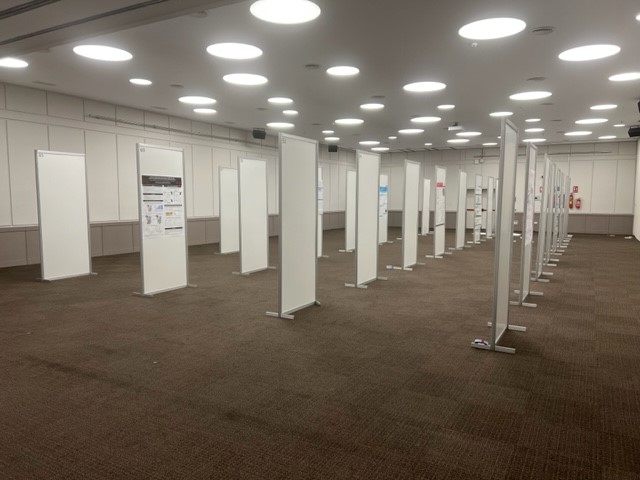
Abstract Submissions
Abstract Submissions are closed. Abstracts for all presentations will be made available to conference participants prior to the start of the conference.
Click here to see the status of your abstract.
Poster Guidelines: The best posters display a succinct statement of major conclusions at the beginning, followed by supporting text in later segments and a brief summary at the end. Click herefor instructions and more information.
Poster Size: 1.0 meter wide and 1.5 meters in length (Portrait style).
Awards will be presented for the best poster.
Program Agenda
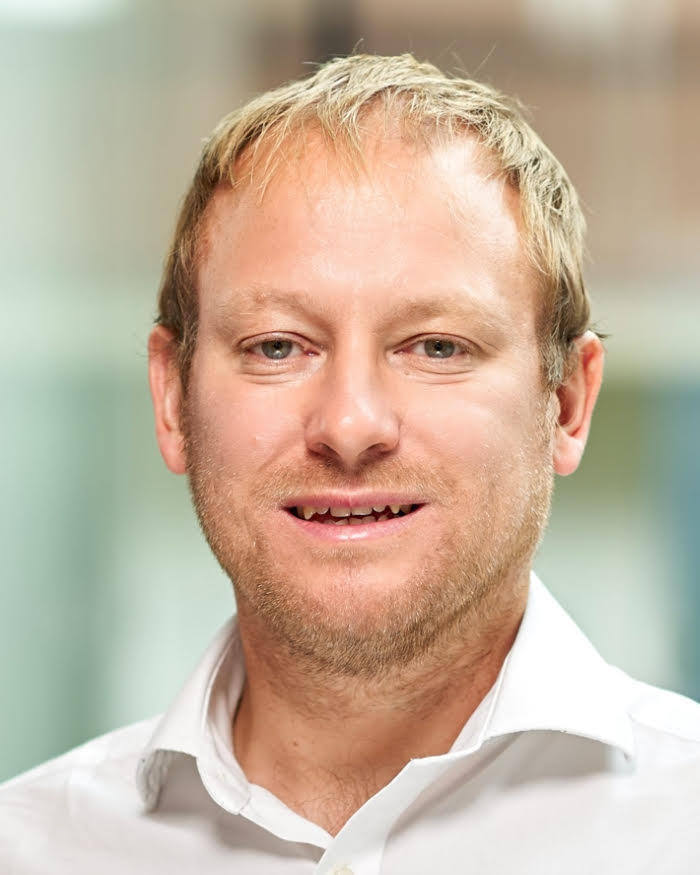
Ivan Wall, Ph.D.
Professor, Regenerative MedicineCo-Director, RESILENCE
University of Birmingham
“Addressing sustainability in workforce growth, facility use and plastics use with VR/AR systems”
Dr. Ivan Wall is Professor of Regenerative Medicine at University of Birmingham, where he is Co-Director of RESILIENCE: the UK Medicines Manufacturing Skills Centre of Excellence, funded by the Office for Life Sciences, a department of the UK Government’s Department for Science, Innovation and Technology. RESILIENCE is a UK-wide Centre that brings together the leading training providers in bioprocessing and translation of medicines, and their focus is on skills/training, outreach and coaching, in order to build a sustainable medicines manufacturing workforce that can meet rapidly evolving sector needs.
Ivan began his academic career at UCL Biochemical Engineering (2009-2017) progressing from Lecturer to Reader, before moving to Aston University (2018-2022) as Professor of Regenerative Medicine Bioprocessing. Throughout his career, Ivan has led innovative skills initiatives throughout his career. He set up a range of training programmes including undergraduate, master’s and apprenticeship programmes. He holds a PhD in cell and molecular biology and an MBA via apprenticeship route.
In 2020, he co-founded FourPlus, who build digitalised and automated software platforms for workforce growth and technology integration for life science manufacturers, educators and vendors. FourPlus software includes spatial computing (VR/AR) and data/AI processing and has to date been used for training in core GMP behaviours and bioprocess operations across the UK. Ivan is an advocate for digital transformation to standardise training, increase workplace readiness in graduates and to accelerate onboarding of new hires. He has spoken widely at conferences and in press on the opportunities for digital transformation to unlock net zero training.
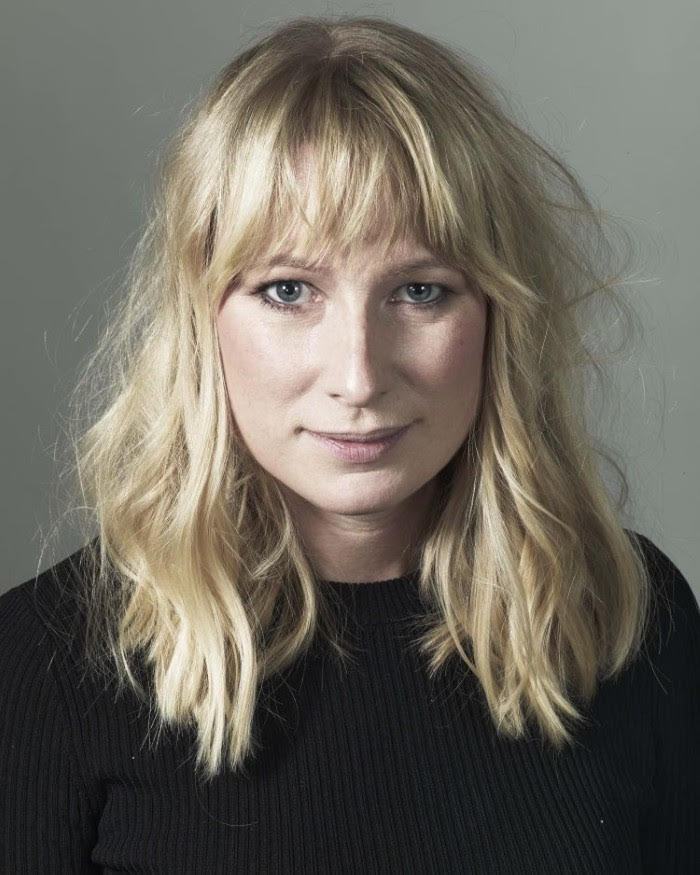
Brenda Parker, Ph.D.
Associate Professor, Sustainable Bioprocess Design, Department of Biochemical Engineering, University College London
“Bio-Integrated Design: Moving from the Anthropocene to the Biocene”
Dr Brenda Parker is an Associate Professor of Sustainable Bioprocess Design at the Department of Biochemical Engineering, UCL. A biochemical engineer by training, her postdoctoral research was conducted as part of the Algal Biotechnology Consortium at the University of Cambridge. As part of the INTERREG Energetic Algae project Brenda was responsible for designing the first phase of the Algal Innovation Centre at the Botanic Garden in Cambridge. She has continued to work on biomanufacturing with photosynthetic organisms for over fifteen years. Prior to joining UCL in 2015, she was awarded a Churchill Fellowship to investigate the role of design when considering the scale up of biological approaches for remediation of pollution.
Brenda’s research and teaching practices are highly interdisciplinary, bringing together environmental biotechnology, bioprocess engineering and design. Together with the architect Professor Marcos Cruz she founded the Bio-Integrated Design Lab and postgraduate programme in the subject in 2018 with the aim of developing novel applications of biotechnology for the built environment. The work of the Bio-ID lab has been exhibited at the Centre Pompidou, MK&G Hamburg and at the London Design Festival. The team’s design of an immobilised algae bioreactor for heavy metal uptake, the INDUS project, was winner of the A/D/O Water Futures competition and shortlisted for Beazley Designs of the Year in 2019 at the London Design Museum. Brenda is co-inventor of a patent on cyanobacterial engineered living materials for biomineralization. The ELM panels are currently installed in an experimental pavilion at the St Andrews Botanic Garden in Scotland.
2025 Program
Conference Fees and Registration
The conference fee includes conference registration, accommodations for the nights of Monday through Wednesday (March 17, 18, 19- check-out after lunch on Thursday, March 20), all meals, and an excursion Tuesday afternoon. Incidental fees (laundry, minibar etc.) will be billed to your personal account by the hotel.
ALL PARTICIPANTS (INCLUDING MEMBERS OF THE ORGANIZING COMMITTEE AND INVITED SPEAKERS) ARE REQUIRED TO REGISTER.
| 2025 Conference Fees:Single Use Technologies VII | Early Bird Registration by 2/14/2025 | Regular Registration after 2/14/2025 |
| Participant (single occupancy or sharing room with a guest*; guest fee additional) | US $2,205 | US $2,405 |
| Participant (sharing a room with another participant) | US $2,000 | US $2,200 |
| Bona fide Graduate Students (sharing a room with another student)To qualify, students must upload proof of current status during registration – copy of current Student ID or a letter from your University confirming your student status. | US $1,590 | US $1,790 |
| Bona fide Graduate Students (upgrade to single room)To qualify, students must upload proof of current status during registration – copy of current Student ID or a letter from your University confirming your student status. | US $1,775 | US $1,975 |
| *Fees for Guest/accompanying person sharing bedroom with a participant (Includes all conference included meals and excursion). Guests/accompanying persons may not attend technical sessions. | US $715 | US $715 |
| *Fees for Guests/accompanying person sharing na bedroom with a participant (Bed & Breakfast ONLY)Guests/accompanying persons may not attend technical sessions, excursion, banquets or conference meals/snacks. | US $85 | US $85 |
Special Notes and Payment Instructions: We suggest that you register as soon as possible to be certain that you will have a hotel room at the conference rate.
All participants are encouraged to register before the early-bird discount deadline: February 14, 2025.
Hotel accommodations cannot be guaranteed for registrations received after 2/14/25.
Should you have specific questions regarding your registration, please contact Renee Smith.
Student Rates
* ECI provides reduced registration rates for bona-fide graduate students in exchange for onsite logistics support, such as: audio visual (AV) and speaker coordinator(s), on-site registration, check-in support, mic runners, photographers, and more. One week prior to the start of the conference, ECI will email all students to ask for on-site help preferences. We appreciate your participation and support!
Cancellation and Substitution Policy
Registration Cancellation Policy
Pre/Post Conference Hotel Reservations
Hilton Malta is happy to provide ECI Single Use Technologies attendees with a reduced conference rate for up to three days before and/or after the conference dates. Please book your room here: https://www.hilton.com/en/attend-my-event/mlahitw-91x-a5cb15c5-32ae-407b-98db-bd70417f11de/
Hotel Reservation Deadline: WHILE SUPPLIES LAST
No cancellations or refunds can be made after 14 February 2025.
Conference Venue
The Hilton Hotel Malta (Vjal Portomaso, Saint Julian’s, Island of Malta STJ4012 Malta) at Portomaso, Malta is located on the seaside (Spinola Bay) overlooking the Portomaso Marina, in the heart of St. Julian’s. It is just 15 minutes from the ancient capital city of Valletta, a UNESCO World Heritage Site. The hotel features a concierge, free WiFi, a spa, tennis, both an indoor and outdoor pool, fitness center, and parking (5 euro/night).
Malta is an archipelago of five islands in the Mediterranean Sea, located between Sicily (about 80 kilometers south of Sicily) and the North African coast (180 kilometers from Libya and Tunisia). Even though it is an archipelago, only the three largest islands (Malta, Gozo and Comino) are inhabited. It has a very strategic location and thus was occupied by many civilizations including the Romans, Moors, Knights of Saint John, French and the British. It gained its independence in 1964. It has a warm climate and thus is a popular tourist destination. There are nine UNESCO World Heritage Sites which honor its history and architecture. Of particular interest is the Hal Saflieni Hypogeum, a subterranean complex of halls and burial chambers dating back to 4000 B.C. Malta is also a popular film location because of its dramatic cliffs, stunning landscapes and ancient buildings. The official languages are Maltese and English although Italian is also widely spoken. Practically all citizens speak English. It is the smallest country in the EU.
The island of Malta played a vital strategic role in World War II as a base of the Allied powers. It was heavily bombarded by German and Italian aircraft and was essentially devastated by the end of the war.
The capital, Valletta, is modern with a rich history. There are numerous monuments and cultural sites, including the St. John’s Co-Cathedral which was built by one of the earlier Grandmasters of the Knights Hospitaller. It contains Caravaggio paintings. Sliema is the most modern and built up area and with nearby St. Julian, it forms a near continuous town spread over two adjacent peninsulas. On the main island is the ancient capital of Mina, also known as the Silent City. Its history traces back more than 4000 years as it was here in 60 A.D. that the Apostle St. Paul is said to have lived after being shipwrecked on the islands. The Maltese are renowned for their warmth, hospitality and generosity to strangers, a trait that was noted in the Acts of the Apostles, with respect to the experience of St. Paul, the Apostle. The eight-pointed, or Maltese, cross, adopted by the Hospitallers of St. John of Jerusalem in 1126, is commonly linked with Malta’s identity and is printed on the country’s euro coin. Valletta is one of Europe’s finest examples of an ancient walled city and extraordinary in its mix of medieval and Baroque architecture.
Transportation
Ground Transportation
| Options | Price (€) | Price ($) | Duration | |
| Taxi | 20 | 21.50 | 22 min | |
| Bus | 2-3 | 2.14-3.20 | 23-51 min | |
| Shuttle | 7 | 7.50 | 32 min | |
Malta Airport to St. Julian’s by Taxi
Taxi services between MIA and any destination in Malta are available 24 hours a day. Pre-paid tickets can be purchased at fixed rates from the taxi booth in our Welcomers’ Hall upon your arrival.
Alternatively, you may book your rides directly through the Malta Taxi app, which is available on both Google Play and the App Store.
For more information, you may visit www.maltataxi.mt.
Email: mtla@maltataxi.com.
Phone: +356 23696441
Malta Airport to St. Julian’s by Bus
Malta Public Transport operates several bus routes which link the airport to various localities around Malta. The “X” Routes will take you to most localities on the island, with various stops along the way, whilst the Tallinja Direct Routes (TD Routes) will take you directly to your destination.
Bus X2 -an express bus line that makes few intermediate stops- travels from the bus stop lying across the road from the terminal’s exit doors on the Ground level to St. Julian’s. It has available routes from 06:00 am to 11:00 pm every hour and takes 51 minutes to reach its destination.
If you opt for an onboard bus ticket, you’ll pay 2€/2.14$. You can use cash or bank cards. However, if you pay in cash, you should carry small notes. Please note that cash tickets allow free bus rides within a 2-hour time frame.
Alternatively, you can buy a Tallinja Card. Tickets and Tallinja Cards are sold via the automatic machines adjacent to the bus stop and outside the Sales Office, at the Malta Public Transport Information and Sales Office which is situated at the Arrivals area and is open from 08:00 am to 07:30 pm, and the WHSmith Outlet lying at the Welcomers’ hall and operating from 10:00 am to 07:00 pm.
Explore Cards allow free bus journeys for 7 days and are priced at 21€/22.50$ for adults and 15€/16.10$ for children (up to 10 years of age). However, they can’t be used for rides with the Tallinja Direct Bus. On the other hand, Explore Flex Cards can be charged with money while providing lower ticket fares (pay-as-you-go system) or be loaded with travel packages, offering free bus rides, journeys with the Hop On Hop Off bus, etc. They cost 6€/6.40$, but their fare is actually a credit for upcoming rides. They are valid for journeys with public buses, Valletta ferry, etc., but not for Tallinja Direct Routes. Finally, 12 Single Day Journey Cards can be used for 12 journeys during the day, 6 rides during the night, or a combination of both. Still, they can be used by only one person, but also for rides with Tallinja Direct Buses. Their cost is 15€/16.10$.
The Tallinja Direct Route
Apart from the express bus, TD2 (Tallinja Direct Route 2) also links Malta Airport to St. Julian’s. The direct bus departs from MLA from 05:30 am to 00:30 am on a 20-minute frequency and reaches St. Julian’s in about 23 minutes. However, during non-peak hours, it has available routes every hour. One-way tickets for TD2 cost 3€/3.20$ and are available from the driver inside the bus. On the other hand, 12 Journey Cards can also be used. As a matter of fact, you’ll need 2 journey tickets for the TD2 journey to St. Julian’s.
Further information about these routes is available here: https://www.publictransport.com.mt/en/airport-services
The bus service runs from just outside the Malta International Airport terminal, across the road from the Check-In Hall.
Another bus stop is located on the left-hand side of the terminal next to McDonald’s.
You may also find Malta Public Transport’s official bus schedule here: https://www.publictransport.com.mt/en/timetables
Malta Airport to St. Julian’s by Shuttle
Besides the public buses, the official airport shuttle company (Malta Transfers) also connects Malta Airport to St. Julian’s. Coaches are wheelchair-accessible and have luggage racks. Still, each passenger is allowed to have one piece of luggage and one carry-on. The bus stop of airport shuttles lies at the Coach Car Park, the parking lot right next to the terminal building. The ride from Malta Airport to St. Julian’s lasts around 32 minutes and costs 7€/7.50$. Nevertheless, if you buy more than one ticket, you’ll benefit from lower ticket fares. In any case, tickets are available at the Malta Transfer Desks situated at the baggage claim zone, online, or via the company’s app.
Sponsors
Sponsorship Opportunities
Previous Conferences in this Series
Single-Use Technologies: Bridging Polymer Science to Biotechnology Applications
October 18-21, 2015
Leesburg, VA, USA
Conference Chairs:
Ekta Mahajan, Genentech, Inc., USA
Gary Lye, Department of Biochemical Engineering, University College London, UK
Single-Use Technologies II: Bridging Polymer Science to Biotechnology Applications
May 7 – 10, 2017
Tomar, Portugal
Conference Chairs:
Ekta Mahajan, Genentech, Inc., USA
Gary Lye, Department of Biochemical Engineering, University College London, UK
Regine Eibl, Zurich University of Applied Science, Switzerland
Single-Use Technologies III: Bridging Polymer Science to Biotechnology Applications
September 23 – 26, 2018
Snowbird, Utah, USA
Conference Chairs:
Weibing Ding, Amgen, USA
Martina Micheletti, University College London, United Kingdom
Robert Repetto, Pfizer, USA
Single-Use Technologies IV Webinar
May 20, May 25, June 1, 2021
Conference Chairs:
Magali Barbaroux, Sartorius, France
Weibing Ding, Amgen, USA
Martina Micheletti, University College London, United Kingdom
Single-Use Technologies V: Building The Future
March 20 – 23, 2022
Marseille, France
Conference Chairs:
Magali Barbaroux, Sartorius, France
Martina Micheletti, University College London, UK
Single-Use Technologies VI: Established, Emerent, Agile, Sustainable?
September 10 – 13, 2023
Boston, Massachusetts, USA
Conference Chairs:
Magali Barbaroux, Sartorius, France
Sheryl Kane, Takeda, USA
Seongkyu Yoon, University of Massachusetts, USA
General Information About ECI
Engineering Conferences International (ECI) is a not-for-profit, global engineering conferences program, originally established in 1962 that provides opportunities for the exploration of problems and issues of concern to engineers and scientists from many disciplines.
The format of the conference provides morning and late afternoon or evening sessions in which major presentations are made. Poster sessions will be scheduled for evening discussion as well. Available time is included during the afternoons for ad hoc meetings, informal discussions, and/or recreation. This format is designed to enhance rapport among participants and promote dialogue on the development of the meeting. We believe the conferences have been instrumental in generating ideas and disseminating information to a greater extent than is possible through more conventional forums.
All participants are expected both to attend the entire conference and to contribute actively to the discussions. The recording/photographing of lectures and presentations is forbidden. As ECI conferences take place in an informal atmosphere, casual clothing is the usual attire.
Smoking is prohibited at ECI conferences and conference functions.


